Text
the demand that the average menial worker “take initiative” and have a “self starting personality” and so on is one of the worst developments of capitalism and the neoliberal ethos bitch tf im just here to do whatever someone told me to do 🤣
#employers wont provide training or even tasks#they expect employees to show up and start working#without the employer having to do anything at all
3K notes
·
View notes
Text
Blink and you could miss them - but mysterious sightings of an extremely rare butterfly have set the hearts of enthusiasts fluttering.
The species, previously described as extinct in Britain for nearly 100 years, has suddenly appeared in countryside on the edge of London.
Small numbers of black-veined whites have been spotted flying in fields and hedgerows in south-east London.
To the non-expert, they could easily be mistaken for the common or garden cabbage white butterflies seen in Britain every summer.
But there's nothing common about the black-veined white on this side of the Channel.
Continue Reading
243 notes
·
View notes
Text
By Patrick Barkham
The Guardian
May 27, 2023
York groundsel was a cheerful yellow flower that slipped into global extinction in 1991, thanks to overzealous application of weedkiller in the city of its name.
But now the urban plant has been bought back to life in the first ever de-extinction in Britain, and is flowering again in York.
The species of groundsel was only ever found around the city and only evolved into its own species in the past century after non-native Oxford ragwort hybridised with native groundsel.
York groundsel, Senecio eboracensis, was discovered growing in the car park of York railway station in 1979 and was the first new species to have evolved in Britain for 50 years, thriving on railway sidings and derelict land.
But the new plant’s success was short-lived, as urban land was tidied up and chemicals applied to remove flowers dismissed as “weeds”.
It was last seen in the wild in 1991. Fortunately, researchers kept three small plants in pots on a windowsill in the University of York. These short-lived annual plants soon died, but they produced a precarious pinch of seed, which was lodged at Kew’s Millennium Seed Bank.
Andrew Shaw of the Rare British Plants Nursery had a vision to bring the species back to life, but when tests were carried out on some privately held seeds very few germinated successfully.
So Natural England, the government’s conservation watchdog, quickly authorised a de-extinction attempt via its species recovery programme, which has funded the revival of the most threatened native species for 30 years.
“The Millennium Seed Bank said the seed was getting near the end of its lifespan and so we thought we would only have one more chance of resurrecting it,” said Alex Prendergast, a vascular plant senior specialist for Natural England.
Natural England paid for a polytunnel at the Rare British Plants Nursery in Wales, where 100 of the tiny seeds were planted. To the botanists’ surprise, 98 of the seeds germinated successfully. The polytunnel rapidly filled with a thousand York groundsel plants.
In February six grams of seed – potentially thousands of plants – were sown into special plots around York on council and Network Rail land.
This week, the first plants in the wild for 32 years began to flower, bringing colour to the streets and railway sidings of York.
This de-extinction is likely to be a one-off in this country because York groundsel is the only globally extinct British plant that still persists in seed form and so could be revived.
But Prendergast said the de-extinction showed the value of the Millennium Seed Bank – to which plenty of York groundsel seed has now been returned – and there were a number of good reasons for bringing the species back to life.
“It’s a smiley, happy-looking yellow daisy and it’s a species that we’ve got international responsibility for,” he said.
“It only lives in York, and it only ever lived in York. It’s a good tool to talk to people about the importance of urban biodiversity and I hope it will capture people’s imagination.
“It’s also got an important value as a pollinator and nectar plant in the area because it flowers almost every month of the year.”
11K notes
·
View notes
Text
Ok so you and I are meeting up. Maybe in your home territory, or maybe somewhere that you know well - don’t doxx yourself - but we are meeting up to explore something particularly. you are in charge of picking the museum, bog, weird antique store, bog, bookshop, bog, gallery, arboretum, botanical garden, show, or bog. Where are you showing me and why?
2K notes
·
View notes
Text
Everyone reblog with your most unemployable traits
67K notes
·
View notes
Link
Shoplifters who spoke to Novara Media said the cost of living crisis had pushed them to steal more of life’s essentials. “A couple of times I’ve been on the verge of crying when I go to buy Sainsbury’s Basics apple and blackcurrant squash and realise the price has doubled in the past three months,” said John.
Lara, a culture worker from London, has started shoplifting groceries more frequently; she said it has become more socially acceptable in her circles. “I know that other people do it, and I’ve seen how other people do it, and that really helped,” she said. Previously, she avoided stealing because her upbringing and wider moralism had convinced her it was “a shameful thing” to do.
“Before, I would have described stealing as this really anti-Islamic thing to do,” she said. Shoplifting is also especially frowned-upon by “parents who come from a working-class or lower middle-class background,” she said, because of how classist ‘scrounger’ stereotypes “trickle down to how we surveil and shame each other.”
Nowadays however, Lara sees shoplifting as “one of the few guerrilla tactics we have available to us.”
Alan, a construction worker from London, who, like John and Anna, has been shoplifting around half his groceries in recent months, has “no moral qualms” about stealing from supermarkets. “I just think that the stuff in the world is ours, all of ours,” he said, “and that we’ve invented a really stupid system for the distribution of resources which doesn’t treat them as ours, and treats them as things that can be used for capitalists to make profit.”
He wouldn’t steal things if it meant that “someone’s labour went unrewarded”, he said, but all shoplifting affects is “the profits of shareholders” he said. “[I have] no concerns about that at all.”
[…]
While, for many, shoplifting feels like a form of resistance to untenable living conditions, no one who spoke to Novara Media was sure how to build solidarity between shoplifters. Alan shoplifts food for rough sleepers, but wishes there were more organised approaches to shoplifting – like the mass stealing and redistribution of food that occurred in Greece following the 2008 financial crisis.
Lara believes shoplifting could be “revolutionary” if it could be “more of an organised operation” that involved “getting workers on side”.
“I think it would be really radical if there would be a widespread recognition and acceptance of stealing as a necessary mechanism for resistance,” she says. “If you can’t afford the things that you have to buy, then the logic should be that you just take them.”
14K notes
·
View notes
Text
maybe i would like flies with that (ukbeetlemania on tiktok)
4K notes
·
View notes
Text
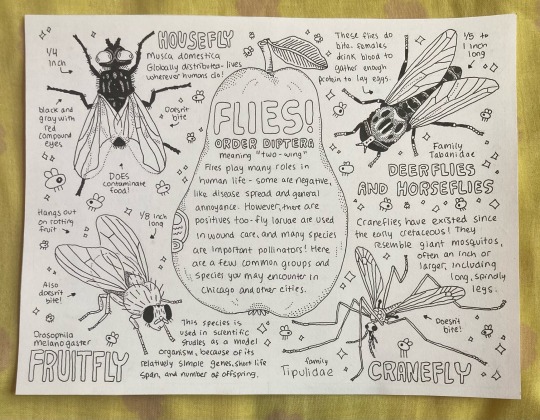
New city inverts zine in the works! Here’s the foldout- all about flies!
252 notes
·
View notes
Text
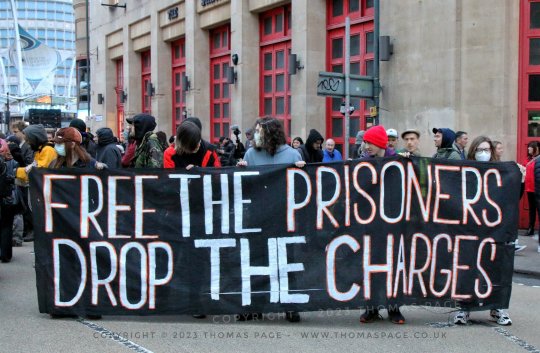
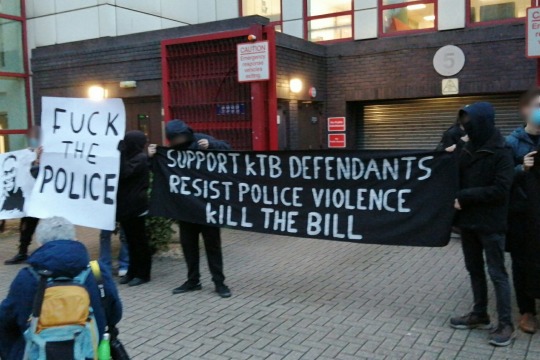
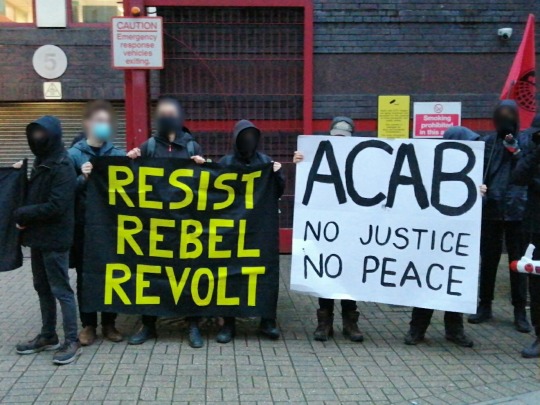
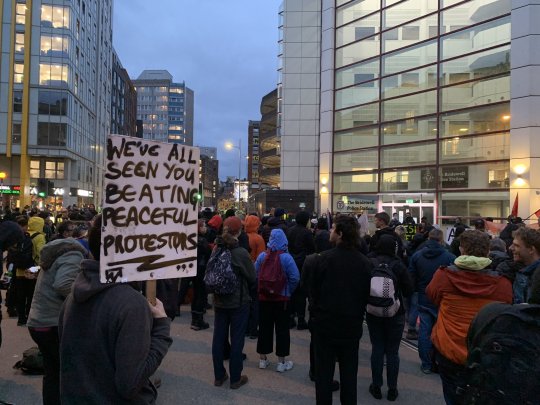
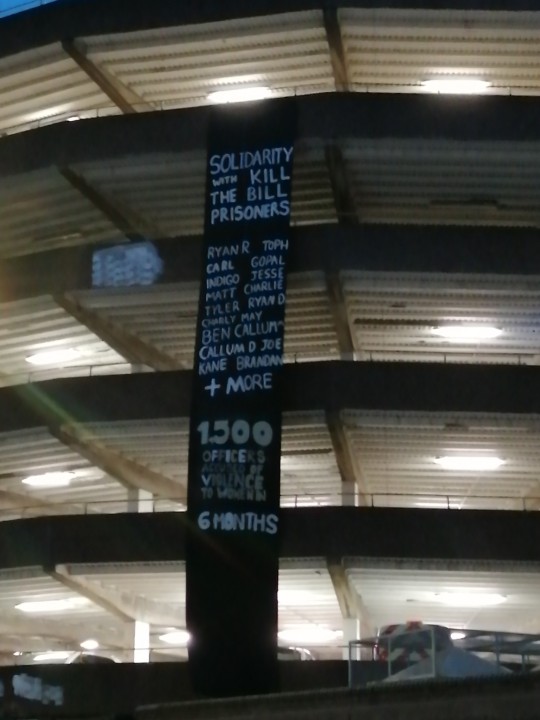
Bristol reportback:
Today marks two years since a protest in Bristol was attacked by the police, so a 300-strong demonstration hit the streets tonight to show solidarity with the over 30 individuals facing extreme prison sentences and awaiting sentencing.
The demonstration back in 2021 was against the patriarchal violence of the UK police in light of the case of Sarah Everard, as well as opposing the policing bill designed to criminalise protest. It escalated outside the Bridewell Police Station when riot police began attacking protesters with shields, batons, and chemical sprays, many protesters who acted in self defense were ganged up on by police and beaten then arrested. Protesters have been handed sentences up to 14 years, together the prison time totals to over 100 years, while at least 26 officers on the night committed misconduct not one has been charged or even removed from active duty.
Tonight the people of Bristol came out to show solidarity with the activists who are facing repression for fighting a tyrannical anti-protesting law, standing up to a mysognistic and institutionally violent police force, and trying to defend fellow protesters. Speeches were given by grassroots organisations set up to support the prisoners and their families, as well as police monitoring and legal support organisations.
Today a report was published stating the MET police is institutionally racist, homophobic, and mysognistic, the KTB protesters weren't only standing up to an oppressive anti-protest legislation but stood in the face of a blatantly violent mysognistic institution that victimises, assualts and denies women justice. The MET has blood on its hands, Avon & Somerset Police are guilty, the UK police protect abusers, r*pists and murderers amongst their ranks, while claiming grassroots political movements are the real problem to justify powers to control dissent. We will not cave in to their abuses of power, we will not forget the victims of their brutality, we will support those who have been left with life long consequences from their actions, and we will remember all those we've lost to their institutional violence.
504 notes
·
View notes
Text
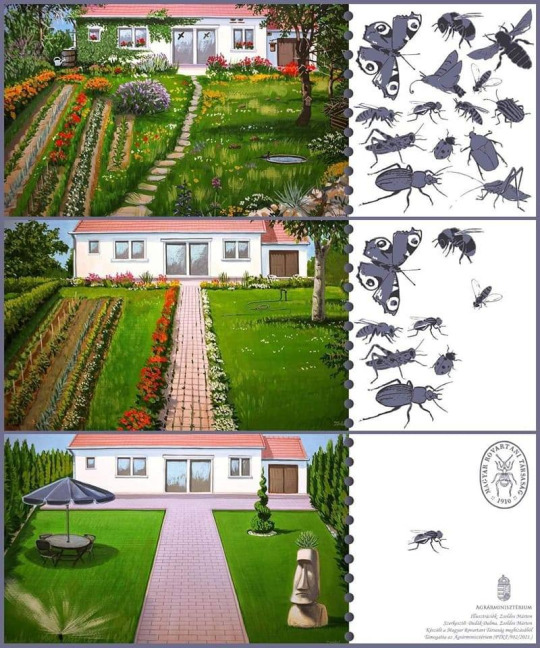
FLY SWEEP
But seriously good environmental message because yeah a diverse lawn will not really impact the “pesky” things. They are pesky to humans *because* they like our blood or our food or our houses rather than needing all that nature stuff. In some cases they are even benefited much more by urbanization; if anything the last image should also add a bunch of mosquitoes because we end up giving them way more places to breed free of predation.
But also FLY SWEEP
4K notes
·
View notes
Text
Have you ever donated blood?
#i dont donate very regularly due to getting tattoos and occasional low iron#but my blood can be given to newborn babies#so i do it when i can
16K notes
·
View notes
Text
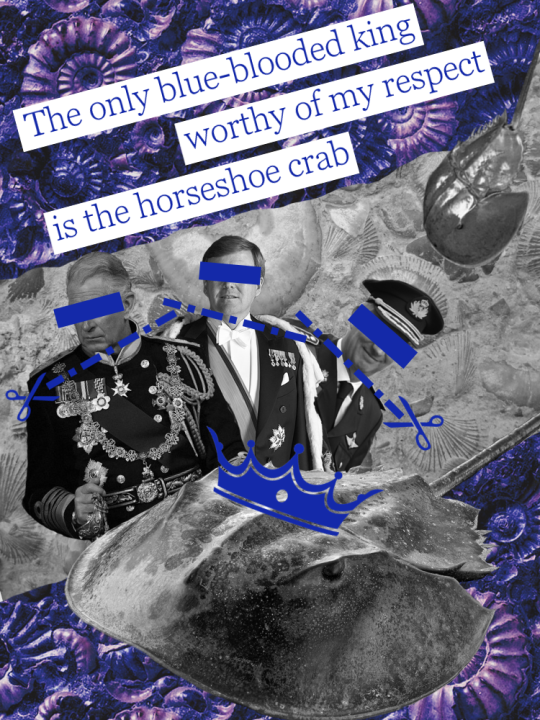
An over 400 million year old, unproblematic dynasty
17K notes
·
View notes
Photo
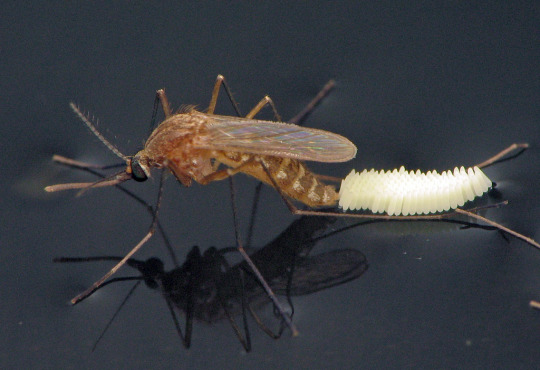
Southern house mosquito, Culex quinquefasciatus, laying eggs on water’s surface
Photographed in Florida by Sean McCann
945 notes
·
View notes
Text
Something related to youth liberation that I don't think I've seen discussed much is the fatalist attitude some people have when a child (usually a teenager) does something wrong that's like "kids are just horrible, there's nothing you can do about it". Because I don't think this kind of behaviour is inevitable, and people, including kids, don't just treat each other badly for no reason!
12 notes
·
View notes
Text

46K notes
·
View notes